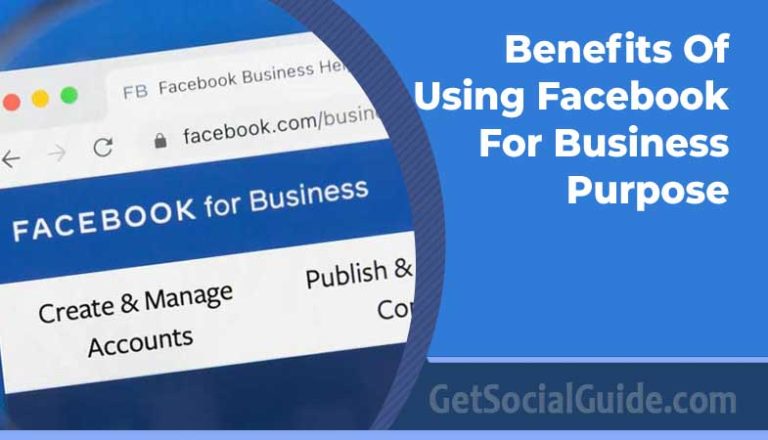Amateur Blogging – A Simple Guide for Amateur Bloggers Who Want to Start Amateur Blogging
What is Amateur Blogging?
Amateur blogging is primarily driven by passion and personal expression rather than monetary gain. It’s about sharing your interests, thoughts, and experiences with the world, and often, amateur bloggers choose to do so on free platforms without the intention of making money from their blogs.
However, while amateur bloggers typically do not focus on monetization, it doesn’t mean that they can never make money from their blogs. There are instances where amateur bloggers may eventually earn some income through their passion projects. Here are a few ways this can happen:
Ad Revenue: Even though an amateur blogger may not actively seek out advertising opportunities, some free blogging platforms may include ads on their sites, generating a small amount of revenue based on views and clicks.
Affiliate Marketing: An amateur blogger may casually participate in affiliate marketing by recommending products or services they genuinely enjoy and using affiliate links. If readers make purchases through those links, the blogger might earn a small commission.
Donations and Patronage: Some readers might appreciate the content provided by amateur bloggers and choose to donate or become patrons, supporting the blogger’s work financially.
Sponsored Content: Occasionally, amateur bloggers may attract the attention of brands or companies interested in collaborating on sponsored content. While this might not be the primary focus, it could result in some compensation.
Transition to Professional Blogging: Some amateur bloggers, as they gain experience and a larger audience, might decide to transition into professional blogging and actively seek ways to monetize their content.
Overall, while the main motivation behind amateur blogging is personal passion and self-expression, there are still opportunities for some income generation along the way. The key is to stay authentic, true to one’s passions, and continue producing high-quality content that resonates with readers.
Are Amateur Blogging and Making Money Off a Blog Polar Opposites?
Starting an amateur blog with the expectation of immediate monetary rewards is not a realistic approach. Amateur blogging is a journey driven by passion, self-expression, and the genuine desire to share valuable content with others. It requires time, dedication, and consistent effort to build a readership and following.
At the beginning of the blogging journey, the primary focus should be on creating compelling and valuable content that resonates with the target audience. By consistently delivering quality posts, amateur bloggers can gradually attract and retain readers, which forms the foundation for future monetization opportunities.
Monetization through affiliate links and banner ads becomes viable as the blog gains popularity and starts to attract a steady flow of traffic. The key is to continue providing value to the audience, building trust, and maintaining authenticity throughout the process. Only then can an amateur blogger potentially transition into a professional blogger and explore various ways to monetize their platform.
It’s important for aspiring bloggers to understand that success in blogging takes time and patience. By focusing on their passion and consistently producing valuable content, amateur bloggers can gradually grow their blogs and potentially turn them into successful professional ventures in the future. Seeking help with social media management, as you mentioned, can also be a valuable strategy to save time and enhance the blog’s reach and visibility.
How to start a blog in easy steps
Let’s go down to business and launch your amateur blogging career. Your first step to becoming an amateur blogger is to sit and follow these steps.
1. Pick your blog name.
When starting an amateur blog, it’s essential to carefully consider the name and domain choice, as it can have long-term implications for the blog’s direction and potential for growth.
Opting to create a website under your name or a general brand name provides flexibility and allows you to explore different topics and niches in the future. This approach prevents you from being limited by a specific niche and enables your blog to evolve alongside your interests and passions.
By building a brand around yourself or a general concept, you create a platform that can pivot and adapt to various industries and topics. This adaptability is especially valuable for amateur bloggers who may be exploring different areas of interest before finding their true passion.
Additionally, having a personal or general brand name gives your blog a sense of authenticity and authority. Readers are more likely to connect with you as an individual or a relatable brand, enhancing the trust and engagement with your content.
While selecting a niche is essential for focusing your content initially, the approach of starting with a flexible brand name offers amateur bloggers the freedom to grow and explore different topics, making it a valuable strategy for those seeking to establish a long-term blogging presence. As you gain experience and understanding of your audience’s interests, you can then fine-tune your niche and create more targeted content while retaining the overall brand identity.
Four Extra blogging tips for your amateur blog name
- Make it Memorable: Aim for a domain name that is easy to remember. A catchy and memorable name will stick in the minds of your readers, making it more likely for them to return to your blog. Avoid complex or confusing words that might be hard for people to recall.
- Opt for .com or .co: While there are various domain extensions available, such as .net, .org, and more, .com and .co are the most widely recognized and trusted extensions. If possible, choose a domain name with a .com or .co extension to give your blog a professional and credible appearance.
- Keep it Short and Sweet: Short domain names are not only easier to remember but also simpler to type. Statistics show that shorter URLs tend to have higher revisits and are less prone to typographical errors. Aim for a concise domain name that gets straight to the point.
- Avoid Hyphens and Numbers: Hyphens and numbers can make a domain name more complicated and less user-friendly. They can lead to confusion when people try to verbally share your blog’s name or type it into their browsers. Stick to letters only for a cleaner and more accessible domain name.
2. Pick Up a Niche for your blog.
Here’s a summary of the key factors to take into account:
- Passion and Knowledge: Start by identifying topics that you are genuinely passionate about. Consider subjects you have in-depth knowledge of or experiences you can share with others. Passion will drive your enthusiasm and commitment to creating valuable content for your readers.
- Learning Opportunity: It’s also worth exploring topics that interest you but that you may not know much about. Blogging can be a learning journey for both you and your audience, and sharing your discoveries and growth can be engaging and relatable.
- Profitability and Market Demand: While passion is crucial, it’s essential to evaluate the profitability and market demand for your chosen niche. Research online forums, Google AdSense, and other sources to assess if people are actively seeking information in that niche. A profitable niche is one where people are willing to pay for valuable information or products.
- Avoid Overly Saturated Niches: While popular niches can be profitable, consider niches that are not overly saturated with competitors. Finding a unique angle or a less explored sub-niche can help your blog stand out and attract a dedicated audience.
- Balance Passion with Business: Although passion is the driving force behind your blog, remember that your blog is also a business venture. Balance your interests with the potential for profitability. A successful amateur blogger finds a sweet spot where passion and profitability intersect.
- Market Research: Conduct thorough market research to understand your target audience’s needs and pain points. Tailor your content to address these specific issues and provide valuable solutions.
- Long-Term Viability: Consider the long-term viability of your chosen niche. While trends may come and go, a niche that has enduring relevance and can adapt to changing times will sustain your blog’s growth in the long run.
By taking these factors into account and conducting thorough research, you can confidently select a niche for your amateur blog that aligns with your passions, has market demand, and holds the potential for success both personally and financially. Happy blogging!
How to Become an Amateur Blogger?
The first step in amateur blogging is to just start creating content and putting your thoughts out there. It’s common for beginners to feel uncertain or unsure about their writing or photography skills, but with practice and persistence, improvement will come naturally over time.
Now, let’s discuss the choice between posting content on a free platform versus a self-hosted WordPress:
Free Platform:
Pros:
Quick and Easy: Free blogging platforms like Blogger, WordPress.com, and Medium are user-friendly and require minimal setup. You can start blogging almost immediately.
No Cost: Since these platforms are free to use, you don’t have to invest any money upfront.
Maintenance and Security: The platform takes care of website maintenance and security, freeing you from technical responsibilities.
Cons:
Limited Control: Free platforms often come with limitations on design, customization, and features, restricting your ability to create a unique and branded blog.
Subdomain: Your blog’s web address will include the platform’s name, such as “yourblogname.wordpress.com” or “yourblogname.medium.com,” which may look less professional.
Monetization Restrictions: Some free platforms may have restrictions on how you can monetize your blog, limiting your potential for earning revenue.
The decision to choose between a free platform and a self-hosted WordPress site depends on the blogger’s long-term goals and commitment to their blogging journey. Here’s a concise recap of the considerations:
Free Platform:
Convenient for Testing: If you’re just starting and want to test the waters with amateur blogging, a free platform provides a quick and easy way to get started without any upfront costs.
Limited Control: Free platforms may have restrictions on design, customization, and monetization options, limiting the overall control and branding of your blog.
Subdomain: Your blog’s web address will include the platform’s name, which may look less professional.
Self-Hosted WordPress:
Professional and Branded: Investing in a self-hosted WordPress site allows you to create a professional and branded blog with a custom domain name, enhancing your blog’s identity.
Full Control: You have complete control over design, features, and monetization options, providing greater flexibility in shaping your blog’s future.
Long-Term Commitment: A self-hosted WordPress site is well-suited for bloggers serious about long-term commitment and establishing a sustainable presence in the blogging world.
In the end, the most crucial aspect of amateur blogging is taking that initial step and starting to create content. Whether you choose a free platform or a self-hosted WordPress site, the journey begins with your passion and dedication to sharing your ideas, experiences, and interests with the world. As you grow and develop as a blogger, you can always reassess your platform choice based on your evolving goals and aspirations. Happy blogging!
Paid Blogging Platforms Pros and Cons (Self Hosted WordPress)
You’ve presented a comprehensive comparison between free blogging platforms and self-hosted WordPress (.org), highlighting the advantages and disadvantages of each option. It’s evident that a self-hosted WordPress blog provides numerous benefits that outweigh the limitations of free platforms. Here’s a summary of the key points:
Pros of Self-Hosted WordPress (.org):
- Suitable for Everyone: Self-hosted WordPress is a versatile option suitable for bloggers of all levels, from beginners to professionals.
- Better Indexation and Ranking: WordPress sites are well-optimized for search engines like Google and Bing, making it easier for your blog to be discovered by a wider audience.
- Infinite Customization: With a self-hosted WordPress site, you have complete freedom to customize your blog’s design, layout, and functionality to create a unique and professional-looking platform.
- Abundance of Plugins: WordPress offers thousands of plugins that extend your blog’s capabilities and allow you to add various features and functionalities.
- Cost-Effective: While not free, self-hosted WordPress is relatively affordable, especially with hosting companies often providing a free domain name for the first year.
- Full Control: You have full control over your blog’s future, allowing you to shape its growth and monetization strategies.
Cons of Self-Hosted WordPress (.org):
- Not Free: The initial setup requires some financial investment, including hosting and domain costs.
- Personal Troubleshooting: As the blog owner, you may need to address technical issues personally, although hosting support can assist you in resolving them.
Your personal experience of starting with a free platform (Tumblr) and eventually transitioning to self-hosted WordPress emphasizes the importance of hosting your blog to ensure greater control, security, and sustainability. Amateur blogging doesn’t equate to unsuccessful blogging; it can indeed lead to success with dedication and the right platform.
Your recommendation of HostGator as a hosting choice for beginners is valuable for those looking to start their amateur blogging journey with a self-hosted WordPress blog.
In conclusion, starting an amateur blog with a self-hosted WordPress site provides more opportunities for growth, flexibility, and control over your content, making it the preferred option for serious bloggers aiming for long-term success.
Amateur Blogging Tips
1. Write Posts Yourself:
Take the time to write your blog posts personally. Since you’re blogging about your passion, it should come naturally. Start with a clear idea and purpose for each post, create an outline, and then start writing. Practice will make the process quicker and more efficient.
2. Add Visuals:
Humans are drawn to visuals, so incorporate high-quality images and graphics into your blog posts. Utilize infographics, banners, graphs, custom posters, memes, and other visually appealing content that adds value to your writing.
3. Create Attractive Headlines:
Craft compelling headlines that capture readers’ attention. Include your target keywords, use power words, invoke curiosity, and consider using odd numbers, as they tend to perform well in headlines.
4. Implement Basic SEO:
While your primary goal as an amateur blogger may not be abundant traffic, basic on-page SEO is still crucial for better overall results. Use relevant keywords throughout your posts and optimize metadata with an SEO plugin like RankMath or Yoast. This will make your articles SEO-friendly and help with organic traffic generation.
By following these tips, you can elevate the quality of your amateur blog and make it more appealing to your target audience. Remember, practice and consistency will help you improve your writing skills, design eye-catching visuals, and craft compelling headlines that engage readers. Taking care of the basics and incorporating SEO best practices will also contribute to the long-term success of your blog. Happy blogging!
You’ve provided two more valuable tips for achieving success with an amateur blog. These tips focus on consistency in posting and leveraging social media to promote your blog effectively. Let’s highlight them:
1. Constant Posting:
Consistency in posting is essential for the growth and success of your blog. While it’s crucial to maintain a steady flow of content, it’s equally important not to burn out. To strike a balance, aim to publish a substantial and well-crafted article once per week. This frequency allows you to maintain quality while keeping your blog active and engaging for readers.
2. Leverage Social Media:
Promote your blog posts on major social media platforms where your target audience is active. You can manually share your content, but for a more efficient approach, consider using social media management tools like Hopper HQ. These tools offer AI-powered scheduling capabilities, allowing you to plan and schedule posts in advance across multiple social channels. By automating the process, you save time and effort while maximizing your blog’s exposure on social media.
By consistently posting high-quality content and effectively leveraging social media, you can increase your blog’s visibility, attract more readers, and build a loyal audience. Remember that blogging, even as an amateur, is a long-term endeavor, and finding a sustainable posting schedule and social media strategy will contribute to your blog’s growth and success over time. Happy blogging!

Quality Content- The Backbone of Successful Amateur Blogging
1. Research:
- Conduct thorough research to ensure your content is accurate and trustworthy. Avoid serving your readers error-ridden text and instead, strive to be a reliable source of factual information.
2. Clarity:
- Write with clarity, considering that your readers come from diverse backgrounds and may be new to the topic. Present your ideas in a fluid and easy-to-understand manner to cater to various levels of knowledge.
3. Embrace Your Writing Style:
- Embrace your unique writing style and voice. Avoid imitating other bloggers and focus on developing your personal style. Commit to improvement over time, as writing skills can be honed with practice.
4. Grammar:
- Pay attention to grammar and proofread your content before publishing. Grammar mistakes can diminish your credibility as a writer, so use tools like Grammarly or Quillbot to assist in proofreading.
5. Utilize AI Writing and Paraphrasing Tools:
- Take advantage of AI-based paraphrasing tools like Jasper AI, Quillbot, and Writesonic to create content efficiently while maintaining its uniqueness. AI writing tools can help speed up content creation without compromising on quality.
By following these tips, you can consistently produce high-quality content that engages your readers and establishes your credibility as an amateur blogger. Emphasizing accuracy, clarity, and your personal writing style while leveraging AI tools will contribute to the success of your blog and keep your readers coming back for more. Happy writing and blogging!
Amateur Blogging Mistakes- Avoid These!
You’ve provided an insightful list of common amateur blogging mistakes to avoid. These mistakes can hinder the growth and success of an amateur blog, but with awareness and effort, they can be overcome. Let’s recap these common mistakes:
- Starting on a Free Platform: Starting a blog on a free platform may limit your control, customization options, and monetization potential in the long run. Consider self-hosted WordPress for better flexibility and branding.
- Choosing the Wrong Niche: Select a niche you’re passionate about and have knowledge in. Avoid topics you have no interest in or lack expertise, as it can affect the quality and authenticity of your content.
- Ignoring SEO: Basic on-page SEO is crucial to improve your blog’s visibility in search engines and attract organic traffic. Don’t neglect SEO practices when creating and optimizing your content.
- Overdoing SEO: While SEO is essential, avoid stuffing keywords or writing solely for search engine algorithms. Prioritize writing for your audience, as search engines like Google value user-centric content.
- Investing in Expensive Affiliate Marketing Tools Prematurely: Master the basics of affiliate marketing before investing in expensive tools. Start with simple strategies and build your expertise gradually.
- Using Clickbait Headlines: Avoid using misleading clickbait headlines that may disappoint readers. Instead, craft compelling and accurate headlines that deliver on the promises of your content.
- Copying Content from Others: Plagiarism is unacceptable. Create original and valuable content, bringing your unique perspective to the topics you cover.
- Irregular Posting: Consistency is key. Establish a regular posting schedule to keep your readers engaged and coming back for more.
- Neglecting Backlink Building: Building backlinks through blogger outreach and other methods can boost your blog’s authority and search engine ranking.
- Neglecting Email Marketing and Social Promotion: Utilize email marketing and social media to connect with your audience, promote your blog, and drive traffic.
- Not Utilizing SEO Tools: Tools like keyword research, analytics, and SEO plugins can provide valuable insights and enhance your blog’s performance. Don’t shy away from using them.
By avoiding these common mistakes and focusing on creating valuable, authentic, and user-friendly content, you can enhance your amateur blogging journey and increase the chances of becoming a successful blogger. Happy blogging!
Amateur Blogging FAQ- Things All Bloggers Must Know
#1- Is Amateur Blogging Worth it?
Yes, amateur blogging is worth it because it allows you to express your passion and interests without the pressure of ranking on search engines or making immediate money. It can be a fulfilling and enjoyable hobby that may eventually lead to profitability if you stay committed.
#2- Can an Amateur Blogger Become a Pro Some Day?
Absolutely! Consistency and dedication to creating valuable content can lead to increased traffic over time, and with more traffic, the potential for monetization and becoming a professional blogger becomes feasible.
#3- Can I Start Blogging on a Free Platform and Later Upgrade?
Yes, it’s possible to start blogging on a free platform and later upgrade to a self-hosted WordPress site or another professional platform. However, starting on a free platform may not be the most optimal choice, as platform changes can be cumbersome and may risk losing content or followers.
#4- What is a Good Example of an Amateur Blog?
A good example of an amateur blog is “Bebop Musings,” a website dedicated to the anime series Cowboy Bebop. While it is built on the free blogging platform Wix and not monetized, it serves as a repository of the author’s thoughts and passion for the subject. However, the author may face risks of losing the website if it’s not self-hosted.
#5- Is My Niche Overcrowded?
Most niches are not overcrowded, and there are opportunities for amateur bloggers to find their place and attract an audience with passion, quality writing, and persistence. Some niches with significant competition may require a larger budget to compete effectively.
#6- Is Blogging the Fastest Way for People New to the Web to Make Money Online?
No, blogging is not the fastest way to make money online, but it is a sustainable and rewarding method. For quick online earnings, people new to the web may consider money-making apps on their phones, although the earnings may not be substantial compared to blogging in the long run.
Concluding My Amateur Blogging Guide for 2025
Amateur blogging is all about pursuing your passion, enjoying the process, and laying the foundation for a potential future as a professional blogger. It’s an exciting journey where you can have fun expressing yourself and sharing valuable content with your target audience.
The key to success in amateur blogging is to avoid the mistake of starting on a free platform where you have limited control and risk losing all your hard work if the platform disappears unexpectedly. Instead, opt for a self-hosted WordPress site that offers flexibility, ownership, and longevity for your blog.
If you embark on your blogging journey today and consistently provide value to your readers and niche, you’ll be surprised by the rewards and opportunities that come your way. So go ahead, start blogging, and enjoy the process. Who knows, your amateur blogging adventure might lead you to a successful and fulfilling career as a professional blogger. Happy blogging, and promise kept!






